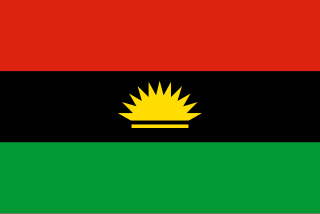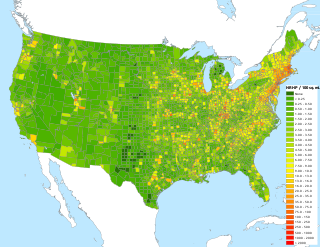| Look up isu in Wiktionary, the free dictionary. |
ISU may refer to:
| Look up isu in Wiktionary, the free dictionary. |
ISU may refer to:

Cameroon, officially the Republic of Cameroon, is a country in west-central Africa. It is bordered by Nigeria to the west and north; Chad to the northeast; the Central African Republic to the east; and Equatorial Guinea, Gabon and the Republic of the Congo to the south. Its coastline lies on the Bight of Biafra, part of the Gulf of Guinea and the Atlantic Ocean. The country is sometimes identified as West African and other times as Central African, due to its strategic position at the crossroads between West and Central Africa. Its nearly 25 million people speak 250 native languages.
At the crossroads of West Africa and Central Africa, the territory of what is now Cameroon has seen human habitation since some time in the Middle Paleolithic, likely no later than 130,000 years ago. The earliest discovered archaeological evidence of humans dates from around 30,000 years ago at Shum Laka. The Bamenda highlands in western Cameroon near the border with Nigeria are the most likely origin for the Bantu peoples, whose language and culture came to dominate most of central and southern Africa between 1000 BCE and 1000 CE.
ISP often refers to Internet service provider. ISP may also refer to:

Uganda, officially the Republic of Uganda, is a landlocked country in East Africa. It is bordered to the east by Kenya, to the north by South Sudan, to the west by the Democratic Republic of the Congo, to the south-west by Rwanda, and to the south by Tanzania. The southern part of the country includes a substantial portion of Lake Victoria, shared with Kenya and Tanzania. Uganda is in the African Great Lakes region. Uganda also lies within the Nile basin and has a varied but generally a modified equatorial climate. It has a population of over 42 million, of which 8.5 million live in the capital and largest city of Kampala.

Biafra, officially the Republic of Biafra, was a secessionist state in West Africa that separated from Nigeria and existed from May 1967 to January 1970. Its territory consisted of the southeastern region of Nigeria, which is predominantly populated by the Igbo people. Biafra was formed by Igbo nationalists who believed they could no longer coexist with Nigeria, leading to the Nigerian Civil War. Nigeria declared war on Biafra shortly after its declaration of independence, eventually resulting in the defeat of Biafra and the reunification of the two states.
Esu or ESU may refer to:

The Bakweri are a Bantu ethnic group of the Republic of Cameroon. They are closely related to Cameroon's coastal peoples, particularly the Duala and Isubu.
UI, Ui, or ui may refer to:
ASU, Asu or asu may refer to:

Central Africa is a subregion of the African continent comprising various countries according to different definitions. Angola, Burundi, Cameroon, the Central African Republic, Chad, the Democratic Republic of the Congo, the Republic of the Congo, Equatorial Guinea, Gabon, Rwanda, and São Tomé and Príncipe are members of the Economic Community of Central African States (ECCAS). Six of those states are also members of the Economic and Monetary Community of Central Africa (CEMAC) and share a common currency, the Central African CFA franc.

Owerri is the capital of Imo State in Nigeria, set in the heart of Igboland. It is also the state's largest city, followed by Orlu, Okigwe and Ohaji/Egbema. Owerri consists of three Local Government Areas including Owerri Municipal, Owerri North and Owerri West, it has an estimated population of about 1,401,873 as of 2016 and is approximately 100 square kilometres (40 sq mi) in area. Owerri is bordered by the Otamiri River to the east and the Nworie River to the south.
Ndu may refer to:

The Isubu are a Bantu ethnic group who inhabit part of the coast of Cameroon. Along with other coastal peoples, they belong to Cameroon's Sawa ethnic groups. They were one of the earliest Cameroonian peoples to make contact with Europeans, and over two centuries, they became influential traders and middlemen. Under the kings William I of Bimbia and Young King William, the Isubu formed a state called Bimbia.

The National Register of Historic Places in the United States is a register including buildings, sites, structures, districts, and objects. The Register automatically includes all National Historic Landmarks as well as all historic areas administered by the U.S. National Park Service. Since its introduction in 1966, more than 90,000 separate listings have been added to the register.
The Hundred Days Men was the nickname applied to a series of volunteer regiments raised in 1864 for 100-day service in the Union Army during the height of the American Civil War. These short-term, lightly trained troops freed veteran units from routine duty to allow them to go to the front lines for combat purposes.
The Somali Bantus are a Bantu-speaking origin ethnic marginalized group(s) in Somalia who primarily reside in the southern part of the country, primarily near the Jubba and Shabelle rivers. The Somali Bantus are descendants of enslaved Bantus from various Bantu ethnic groups from Southeast Africa specifically from Mozambique, Malawi, Ethiopia,,and Tanzania. Somali Bantus are not genetically related to the indigenous ethnic Somalis and have a different culture distinct from the Somalis and they have remained marginalized ever since the existence of Somalia (1960). In 1991, 12,000 Bantu people were displaced into Kenya, and nearly 3,300 were estimated to have returned to Tanzania.

The following outline is provided as an overview of and topical guide to Cameroon:
Anyim Chukwu Ude was elected Senator for the Ebonyi South constituency of Ebonyi State, Nigeria, taking office on 29 May 2007. He is a member of the People's Democratic Party (PDP).